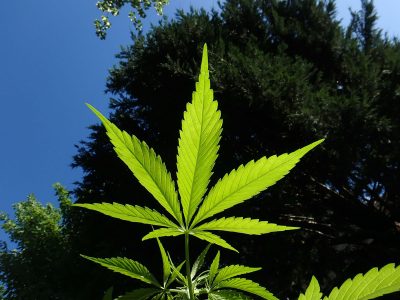
As Election Day approaches, Boston University students and administrators are making up their minds on how the state’s Ballot Question 4, the proposal to legalize recreational marijuana, would potentially impact the university. And they do not agree.
A yes vote on Question 4 would “allow persons 21 and older to possess, use, and transfer marijuana and products containing marijuana concentrate (including edible products) and to cultivate marijuana, all in limited amounts, and would provide for the regulation and taxation of commercial sale of marijuana and marijuana products,” and a no vote will make no changes on the state’s current law, according to the state’s website.
BU Dean of Students Kenneth Elmore said that if Question 4 passes, the legalization of marijuana wouldn’t spark major changes in policy.
“We’ll still say to students that if you’re on our property, you can’t use and possess marijuana,” Elmore said.
Elmore said he does not anticipate that Question 4, if passed, would have a huge impact on BU campus, especially when the federal and state governments may hold different perspectives on legalization.
“We are an entity that gets support, whether from financial aid, research, or projects, from the federal government,” Elmore said. “The federal government has made it clear that we need to follow their rules and regulations … The best we want to do is to comply with city, state and federal laws.”
In regards to the penalties, if a student is found in possession on campus, the case will be reported to Judicial Affairs, who will then conduct an investigation, Elmore said.
“I never want to say we have a descriptive way that we always [use to] deal with circumstances like this,” Elmore said. “It might be different for each individual. [It’s] suffice to say that we’ll address it and we’ll follow up with the student.”
BU Police Department Acting Chief Scott Paré said he doesn’t anticipate a huge impact on BU’s campus either.
“Obviously you can’t smoke in any of the buildings [on campus], and I’ve also seen, from what I’ve read, [if] the law passes, you won’t be able to smoke in public,” Paré said. “So if you can’t smoke in the buildings, and you can’t smoke in public, there’s very few places you’ll be able to smoke [on campus].”
Student Government Executive Board President Jake Brewer said that although he hasn’t talked to the university about Question 4, if it passes, the university should “move quickly” to provide students with a space for smoking marijuana on campus.
“If the university doesn’t provide a space for it, students will find it elsewhere or damage the buildings,” the senior in the College of Arts and Sciences said. “That is why I think [allowing smoking marijuana in certain areas is the best solution, and I hope that is what [the administration] is considering.”
Several BU students said marijuana usage on campus should be treated no differently than other substances — Allison Russo, a CAS junior, said she believes marijuana should be treated like alcohol on campus. Russo, a registered voter in Massachusetts, said she voted yes on Question 4.
“I don’t see why there would be any difference between the marijuana and the alcohol policy if it passes,” she said. “I think that if it’s legalized and we already have policies that allow alcohol for people over 21, then there’s no reason to not allow [marijuana].”
Tanapat Bhakyapaibul, a junior in the College of Engineering, said he believes smoking marijuana should be handled like all other types of smoking. Bhakyapaibul, also a registered voter in Massachusetts, said he voted yes on Question 4.
Helen Lindsay, an ENG junior, said if marijuana is legal in the state, then students should be consume it on campus, as long as it’s in a responsible fashion. Although Lindsay is not a registered voter in the state, she “would probably still vote yes” on Question 4.
“People shouldn’t have just a ton of weed in their dorm,” she said. “[But the university should] regulate it, like for alcohol, you have to be a certain age [to have] a six-pack.”
Jared Naar, a freshman in the Sargent College of Health and Rehabilitation Sciences, said people shouldn’t oppose marijuana legalization.
“If you don’t like it, then just don’t do it,” Naar said.














